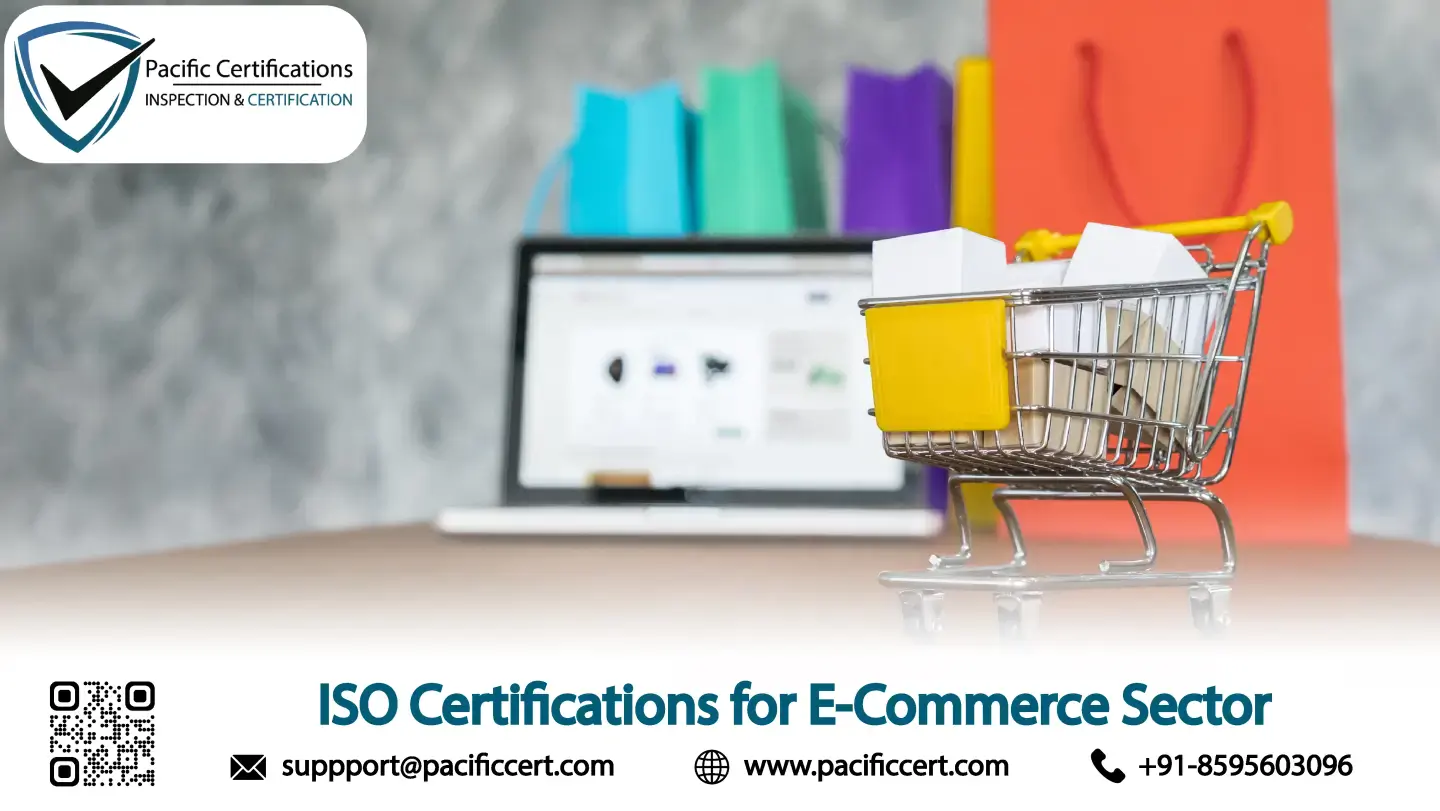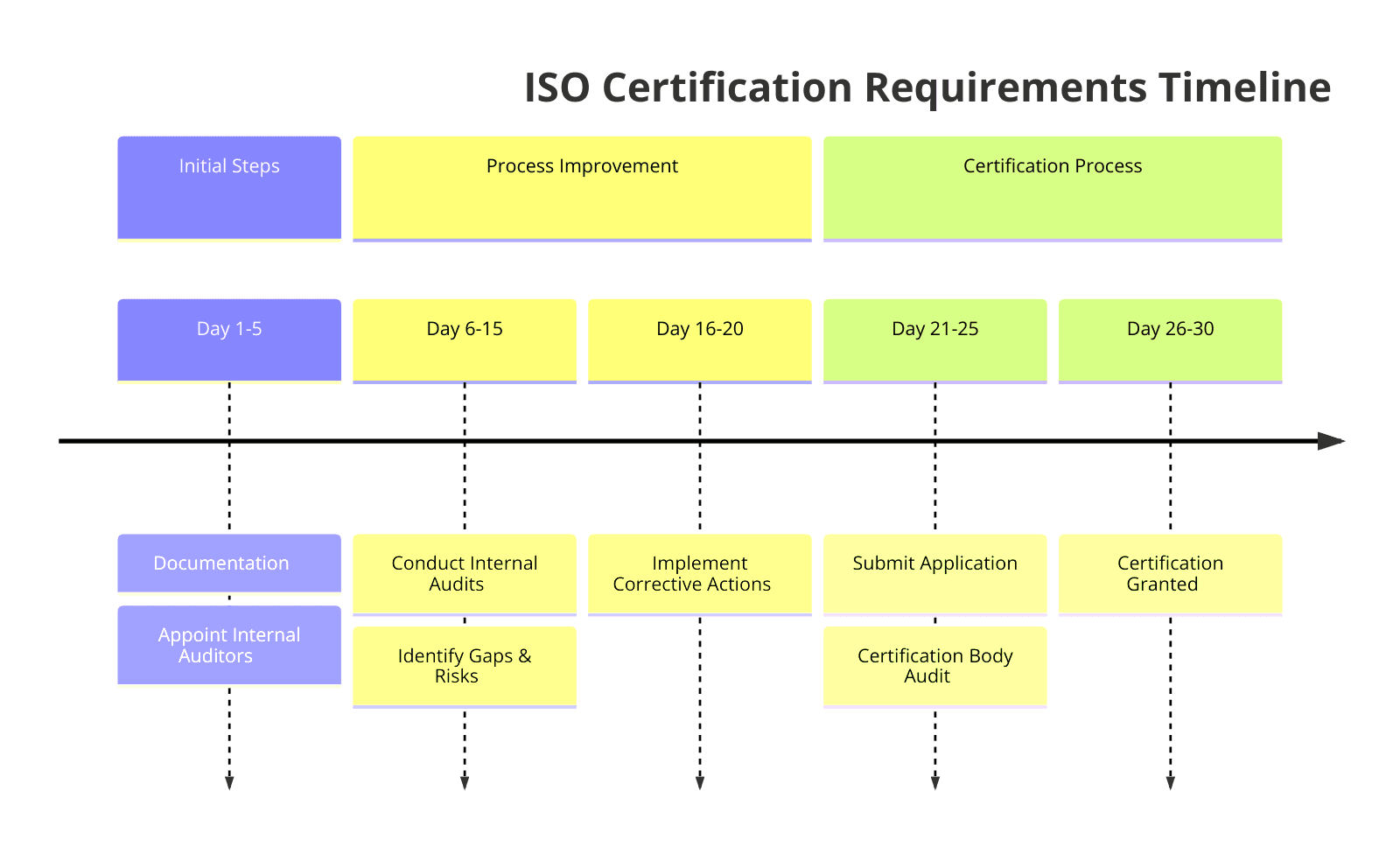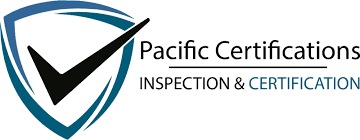ISO Certifications for E-Commerce Sector, Requirements and Benefits

Introduction
The e-commerce industry has transformed the way the world shops, connecting billions of customers and businesses through digital platforms. According to Statista projections e-commerce sale is expected to exceed USD 8.5 trillion in coming years. As e-commerce continues to grow quickly, it has become essential for platforms and service providers to prioritize data privacy, keep customers satisfied, ensure smooth operations, and protect against cybersecurity threats.
ISO certifications provide structured management systems that help e-commerce businesses ensure secure online transactions, consistent quality, transparent supply chains, and compliance with data protection laws such as GDPR and CCPA.
“In e-commerce, trust is the currency. ISO standards help brands earn and preserve that trust through consistency and security.” — Pacific Certifications
Quick summary
ISO certifications help e-commerce organizations improve data protection and provide a better experience for customers. They boost confidence among consumers, investors, and regulators by promoting transparency and compliance across both digital platforms and physical operations.
Applicable ISO Standards for E-Commerce Sector
These certifications can help e-commerce companies to increase their operational efficiency and meet regulatory requirements. Here's an overview of relevant ISO standards that e-commerce companies should consider for certification:
ISO 9001: Quality Management Systems (QMS)
ISO 9001 is the international standard for quality management systems. Implementing ISO 9001 can help e-commerce companies enhance customer satisfaction by ensuring consistent quality, improving operational efficiency, and fostering a culture of continuous improvement.
ISO 27001: Information Security Management Systems (ISMS)
ISO 27001 is the leading international standard focused on information security. It outlines the requirements for establishing, implementing, maintaining, and continually improving an information security management system (ISMS).
ISO 14001: Environmental Management Systems (EMS)
ISO 14001 specifies the requirements for an effective environmental management system. It provides a framework that an organization can follow, rather than establishing environmental performance requirements.
ISO 22301: Business Continuity Management Systems
ISO 22301 can ensure that they have strong plans in place to maintain critical operations during times of crisis, thereby minimizing downtime and maintaining customer service.
ISO/IEC 20000-1: Service Management System (SMS)
ISO/IEC 20000-1 specifies requirements for an organization to establish, implement, maintain, and continually improve a service management system (SMS).
Click here to find out more applicable standards to your industry
Contact us today at [email protected] to find our the suitable ISO standard for your company!
What are the general requirements of ISO Certifications for E-Commerce Industry?
ISO certifications for e-commerce companies entail a rigorous process that involves meeting specific requirements. Below are the requirements and benefits of ISO certification for e-commerce companies:

Set clear quality, security, and sustainability objectives aligned with customer expectations and regulatory requirements.
Identify potential risks such as fraud, data leakage, supply disruptions, or software vulnerabilities, and define risk treatment plans.
Develop well-documented workflows covering order processing, data handling, logistics, and customer service for audit consistency.
Apply encryption, access management, and incident response procedures to protect consumer data and online transactions.
Provide structured awareness and compliance training to staff, delivery partners, and third-party service providers.
Periodically evaluate system performance, identify non-conformities, and implement improvements.
Create tested procedures for restoring systems, logistics, and customer communication after disruptions.
Undergo independent Stage 1 and Stage 2 audits through an accredited body.
What are the Specific requirements of ISO Certifications for E-Commerce Industry?
ISO/IEC 27001 (Information Security Management System) Requirements
Identify and assess potential risks to information assets.
Implement security controls to protect sensitive data.
Conduct regular audits and risk assessments.
Develop an incident response plan for data breaches.
ISO/IEC 27701 (Privacy Information Management System) Requirements
Maintain compliance with data privacy laws like GDPR or CCPA.
Implement policies for collecting, storing, and processing personal data.
Provide transparency on data usage to customers.
Conduct privacy impact assessments regularly.
ISO/IEC 20000-1 (IT Service Management System) Requirements
Develop structured processes for IT service delivery and support.
Ensure continuous monitoring of services (e.g., website uptime, payment gateways).
Define roles and responsibilities for IT management.
Perform internal and external audits to assess service quality.
ISO 22301 (Business Continuity Management System) Requirements
Identify critical operations and potential risks (e.g., cyberattacks).
Develop recovery strategies and backup systems.
Conduct regular business continuity drills.
Monitor and improve resilience to disruptions.
Tip: Begin with ISO 9001 and ISO/IEC 27001 to establish quality and information security foundations. Once mature, integrate ISO/IEC 27701 for privacy compliance and ISO 22301 for continuity management.
What are the benefits of ISO Certifications for E-Commerce Industry?
ISO certifications provide a globally recognized framework that helps e-commerce businesses reduce operational risks and protect customer trust. Below are the key benefits:
Safeguards sensitive customer and payment data from unauthorized access or breaches.
Demonstrates commitment to security, quality, and ethical business practices.
Aligns operations with GDPR, CCPA, and PCI DSS requirements.
Streamlines processes across fulfillment, returns, and support to reduce errors and delays.
Encourages eco-friendly packaging and carbon-efficient logistics through ISO 14001.
Reduces financial loss and downtime during disruptions.
Builds credibility and eligibility for international partnerships and B2B contracts.
Improves workplace practices, reducing incidents in warehouses and delivery operations.
Market Trends
By 2030, the e-commerce industry will experience an average growth rate of 8.9% annually, driven by AI personalization, data analytics, and enhanced cybersecurity regulations. Reports by McKinsey indicate that 70% of online retailers are investing in ISO-aligned frameworks to strengthen brand trust and reduce cyber vulnerabilities.
With governments worldwide enforcing data protection and sustainability laws, certifications such as ISO/IEC 27701(Privacy) and ISO 14001(Environmental) are expected to become mandatory in procurement and compliance audits.
By 2030, certified e-commerce platforms are projected to have 40% higher customer retention and 30% fewer compliance incidents than uncertified competitors.
How Pacific Certifications Can Help?
Pacific Certifications is accredited by ABIS under ISO/IEC 17021 and ISO/IEC 17024, offers third-party audits and certifications to e-commerce and digital service organizations.
Our Expertise Includes:
Certification for ISO 9001, ISO/IEC 27001, ISO/IEC 27701, ISO 22301, ISO 14001, and ISO 45001.
Specialized experience with online retailers, fintech firms, logistics platforms, and SaaS providers.
Global auditing capability — onsite or remote.
Three-year certification validity with annual surveillance audits.
Why Choose Pacific Certifications?
Accredited and internationally recognized certification body.
Expertise in e-commerce cybersecurity, privacy, and service delivery audits.
Transparent audit process and quick turnaround.
Proven record across 150+ countries with digital-first companies.
To conclude, the process of obtaining ISO certification requires commitment and investment but offers significant benefits in terms of efficiency, customer satisfaction and competitive positioning.
If you need support with ISO certification for your E- commerce business, please contact us at [email protected] or +91-8595603096.
Contact Us
If you need support with ISO certification for E-Commerce Sector, contact us at [email protected].
Author: Poonam
Read More at: Blogs by Pacific Certifications

